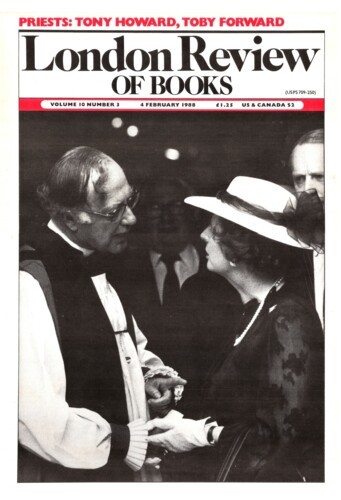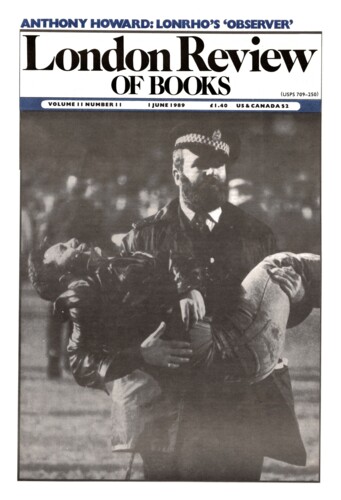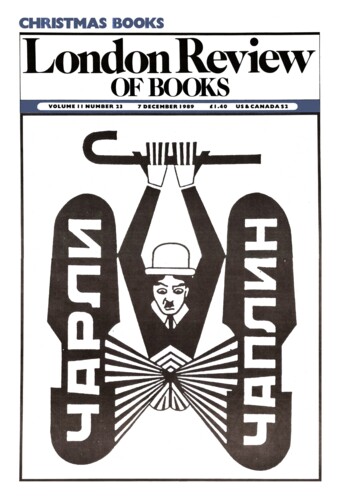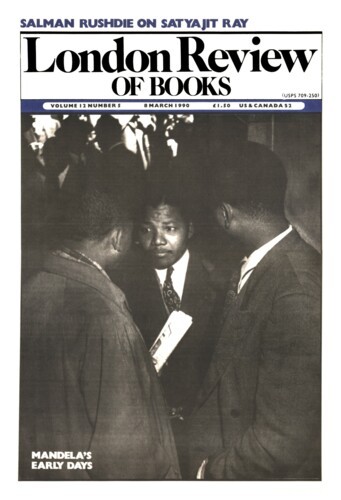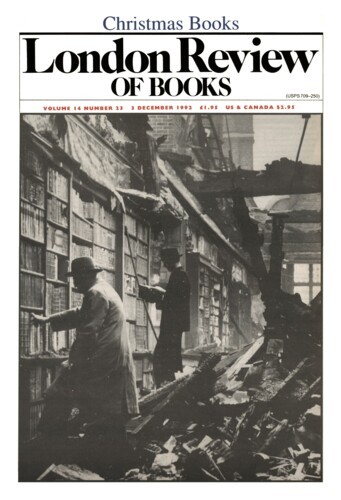Anthony Howard writes about the spitting image of the Church of England
Anthony Howard, 4 February 1988
This summer some five hundred bishops of the Anglican Communion will converge on Canterbury. They will have come to attend the 12th Lambeth Conference – as these gatherings are still called, though they have long since ceased to meet at the Archbishop of Canterbury’s London Palace on the south side of the river. This year’s Lambeth Conference, like the one in 1978, will take place on the Canterbury campus of the University of Kent – with the bishops sleeping on cork mattresses in student bedrooms and enduring cafeteria self-service at every meal except dinner.’
